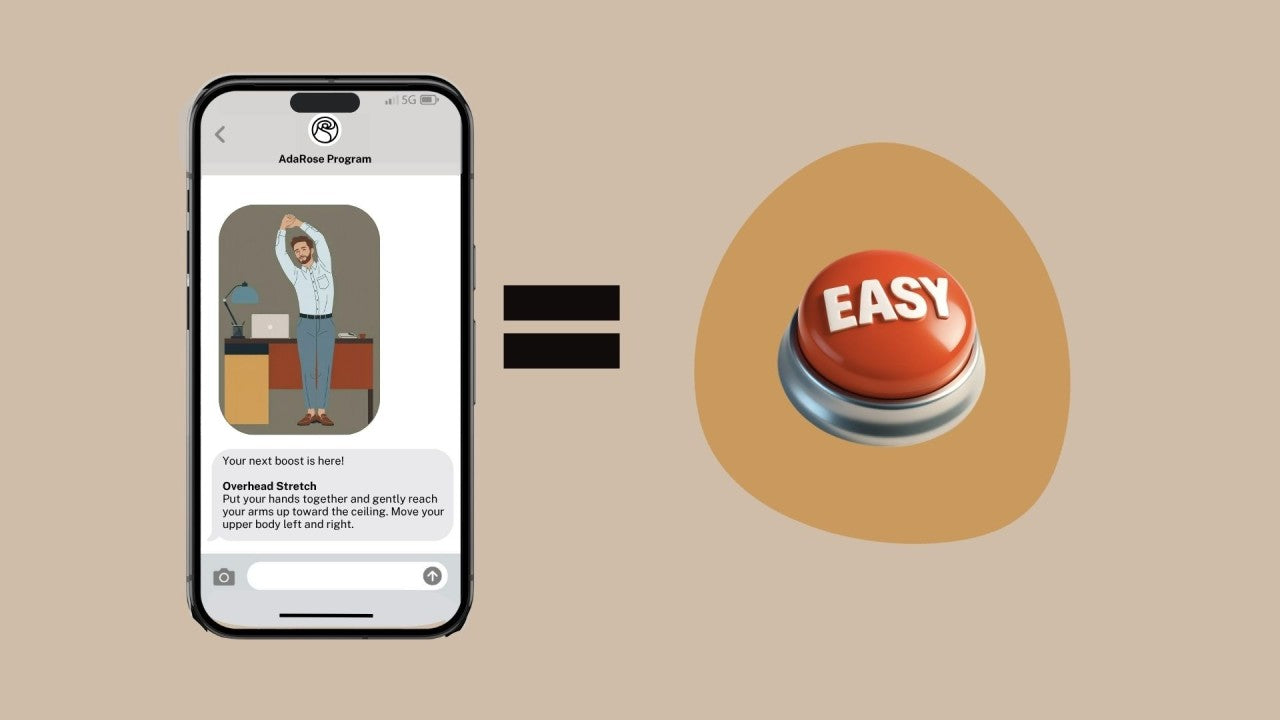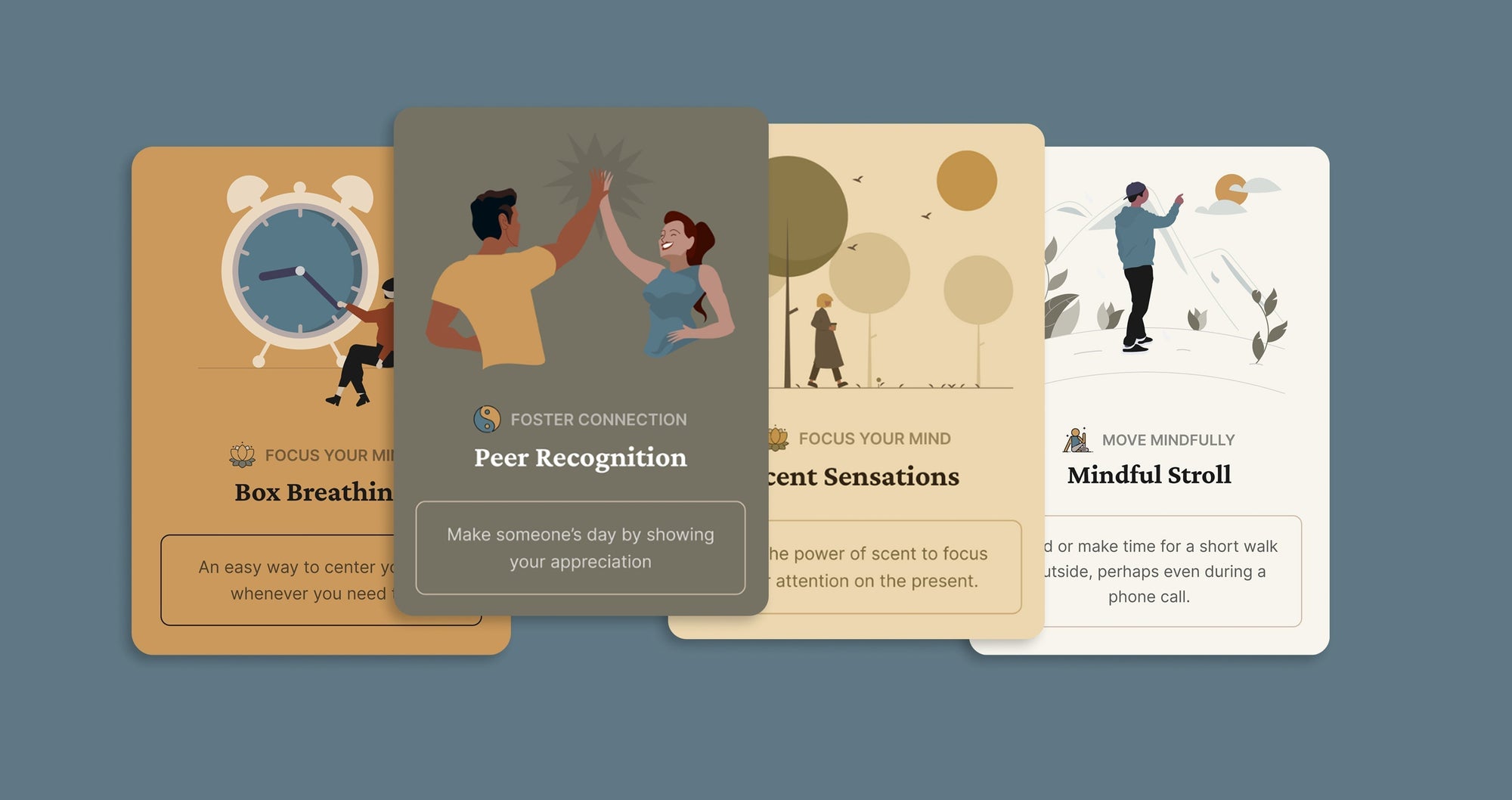Did you know that everyday behaviors like eating, sleeping, and exercise impact your overall health more than anything else over the course of your lifetime? Good doctors, good genes, and good luck play a part, too. But no matter your situation, you have more power than you may think to own your health and in doing so, improve your life.
That’s not to say it’s easy! Changing any behavior takes time and patience, but it can be extra daunting to change a health behavior, like boosting your physical activity or losing weight. When it comes to health, you can’t always see the impact of your actions in the short term, or even in the long term. (How much did eating fruits and vegetables instead of cheese pizza actually improve your cholesterol?)
I interviewed Jimmy Choi, a Parkinson's patient who used to be totally overwhelmed by his disease. Despite the challenges, Jimmy has become an American Ninja Warrior and Guinness World Record holder in both pushups and burpees.
How did he get there? Literally by taking one step at a time over a period of several years, breaking huge challenges into tiny, more manageable goals, and adopting a healthy lifestyle.
While it’s clear that behavior is a critical part of health, there are multiple theories about how to change behavior, no one of which works for everyone. Luckily, in general, they are compatible with each other… so you can choose one or more!
We’ve summarized for you some key concepts supported by the National Board for Health and Wellness Coaching and widely accepted by behavior change experts:
- The 5 Stages of Change (the Transtheoretical Model)
- How to Set Goals (the Goal Setting Theory)
-
Believe in Yourself (the Health Belief Model)
The 5 Stages of Change
The key concept behind the “Stages of Change” approach is that people go through five predictable steps in the process of changing a behavior. These steps are precontemplation, contemplation, preparation, action, and maintenance.
In the precontemplation stage, people are unaware of their behavior and its consequences, or have no immediate intent to change it. In the contemplation stage, they recognize that the behavior has negative consequences, and are considering the pros and cons of making a change.
The preparation phase kicks in when people plan to take action within 30 days, and they begin to take small steps to get ready. The action and maintenance phases are about actually altering the behavior and keeping it up. (Easier said than done!)
The Stages of Change approach to behavior modification is sometimes called the “Transtheoretical Model.” A key takeaway is that you need to communicate differently with people based on where they are in the process. For instance, it’s a waste of time to keep trying to convince someone of the value of a certain change if they are already past the “contemplation” phase. It’s also silly to keep showing someone how to change if they’re not convinced that they should.
Are you in the contemplation phase for any health changes in your life? I am very much thinking about cutting back on sugar (it’s an ongoing battle for me), but I haven’t made any concrete commitments. Maybe next week…
How to Set Goals
“Goal Setting Theory” is based on the idea that change happens because people take deliberate action, and that people are motivated to set goals only if they are unhappy with the way things are. Research also shows that if you write down a goal, you are 42% more likely to achieve it.
However, if you set your initial goal too high, you will (most likely) fall short and “prove” to yourself that you cannot do something. Conversely, if you set your initial goal at an appropriate level, you are more likely to reach it and thus “prove” to yourself that you can, in fact, succeed. You can then set the next goal at a slightly higher level.
Do you have any examples of initially setting a goal too high for yourself? I know I’ve done that with running. Like when I thought I could just go out and run three miles (though I hadn’t run in months), and then I hurt my Achilles. (Duh!)
Believe in Yourself
According to the “Health Belief Model,” a person’s willingness to change depends on their level of desire to avoid illness or get well, and the extent to which they think a particular behavior will help them to achieve that goal.
More specifically, this model dives into a person’s level of perceived “susceptibility” to a health risk, the perceived “severity” of that health risk, the perceived “benefit” of making a change, and the perceived “barriers” they face related to making that particular change.
It's easy to map this theory onto behaviors related to the COVID-19 pandemic. People who take COVID-19 seriously are more likely to stay well than those who don’t to wear masks or get vaccinated. It helps if they also believe those actions will make a difference, and are not too difficult for them to achieve. Note: I fall strongly into the pro-mask wearing, pro-vaccine camp, as supported by scientific evidence. Center for Disease control (CDC) guidelines are here.
In addition to the perceptions listed above, the Health Belief Model highlights the importance of figuring out what specific trigger will push someone to take action. In the COVID-19 prevention case, the “cue to action” might be a talk with their health care provider.
Finally, the Health Belief Model points out the importance of “self efficacy”: the belief that you can, in fact, make a difference in your health through actions you take. I particularly like the self efficacy concept. It’s easy to feel overwhelmed by the many things in life beyond our control, but change is possible.
Ways to Get Started
There are many ways to build healthy habits, but it’s hard to go at it alone. You may want to work with an accredited health and wellness coach. You can find an accredited National Board Certified Health and Wellness Coach in your local area or online.
It's also important to work with your health care provider when making health-related behavior changes. Thanks to telehealth options, it's now easier than ever to connect with your provider even with a busy and demanding schedule.
Lastly, at AdaRose we've crafted unique experiences to support employees with realistic wellness. Try out one of our two flagship experiences: the Spa in a Box or the Work Break in a Box for wellness delivered straight to your home. You'll receive a curated kit of wellness and self care products, along with on-demand expert guidance to follow along to and repeat on a regular basis to make health a habit.
What has helped you change or adopt a particular health behavior? Perhaps more importantly, what has helped you adhere to this health behavior long term? Are there specific products or services you’d recommend? Leave a comment below and let us know!





